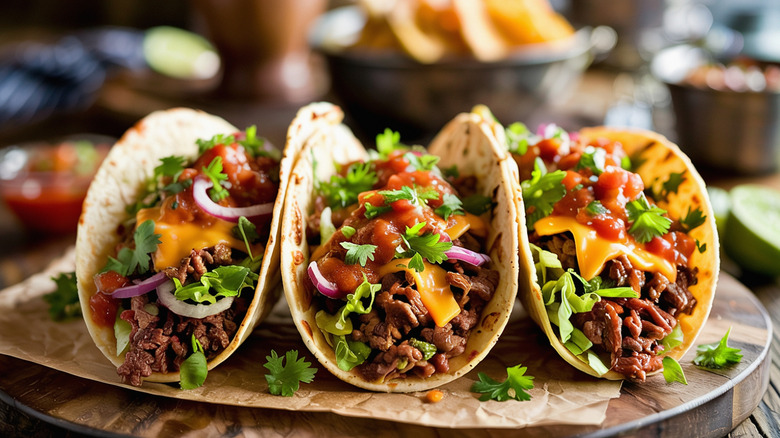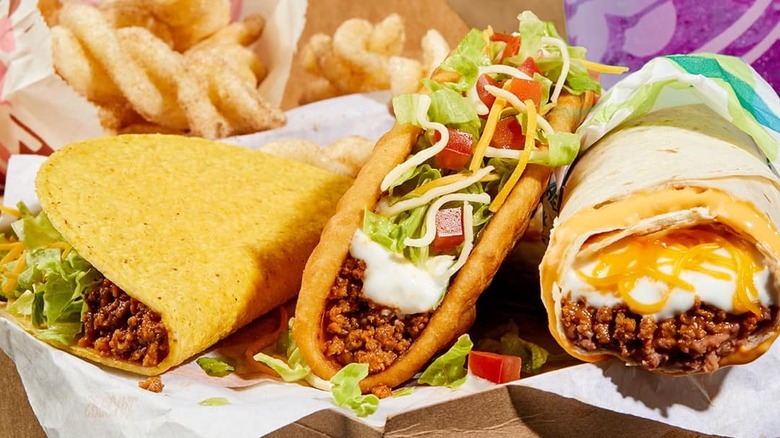The Popular Taco Chain That Uses Sustainable Beef
In the world of fast food, sustainably sourced beef has become a luxury, not a guarantee. In a high-demand, fast-paced business model, sustainable ingredients can add extra costs, disrupt supply chains, and is often in limited supply. Fortunately, this doesn't mean that all chains ignore sustainable practices. Taco Bell, for example, has committed to using sustainably sourced beef.
Taco Bell is widely considered the most popular Mexican-inspired fast food chain in the United States (though fascinatingly, it flopped in Mexico). With over 8,000 restaurants in the U.S. alone and international availability, Taco Bell is known for being an affordable option and is often cited as the best fast food chain for vegetarian diners. Its efforts toward sustainability and inclusive menu demonstrate that large companies can make meaningful strides without compromising quality or affordability.
Taco Bell has partnered with its supplier Cargill and the National Fish and Wildlife Foundation (NFWF) to implement sustainable changes. This initiative focuses on conservation, regenerative agricultural practices, and resource management in cattle farming to reduce the environmental impact of its beef supply chain. The partnership's goal is to support sustainable beef production while projecting to capture and store up to 44,000 metric tons of carbon dioxide equivalent annually by 2030.
Taco Bell's broader sustainability ventures
Taco Bell is a trailblazer in its commitment to sustainability. Its parent company, Yum! Brands — which also operates familiar fast-food favorites including KFC and Pizza Hut — has been expanding sustainability efforts across packaging, supply chains, and waste management. As part of Yum! Brands' corporate responsibility goals, the company has committed to reducing its greenhouse gas emissions by 46% by 2030, with a longer-term goal of achieving net-zero emissions by 2050 (per Yum! Brands).
Another headline initiative from Taco Bell is its commitment to make all consumer-facing packaging recyclable, compostable, or reusable by 2025. This includes eliminating virgin plastics, non-recoverable plastics, and materials containing environmentally harmful substances. To address the challenge of small waste items ending up in landfills each year, Taco Bell partnered with TerraCycle to launch a nationwide hot sauce packet recycling program. All customers have to do is mail used sauce packets to TerraCycle, where they are cleaned, processed, and recycled into materials for other products. Customers also earn points that can be donated to charitable organizations, making the program both environmentally and socially beneficial. Alongside reducing packaging waste, Yum! also aims to cut operational waste, with the goal of reducing food and waste loss by 50% by 2030. So if you enjoy eating out at places with a conscience, Taco Bell is a great eco-friendly option.


